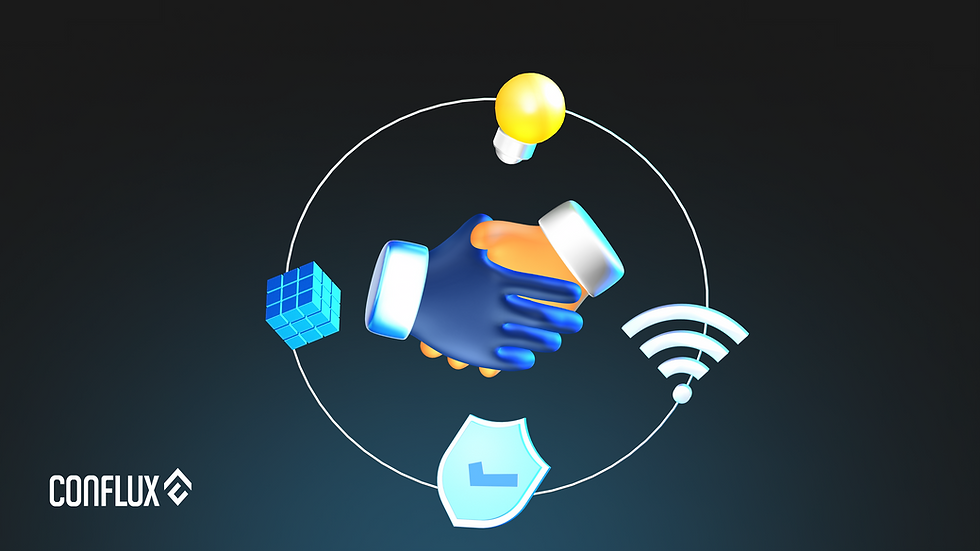Most common cryptocurrency terms you should know
- Conflux Network
- Sep 15, 2022
- 3 min read
Updated: Sep 16, 2022

Voyaging into the world of cryptocurrency for the first time? I bet some of the terms you’ve read or seen feel so foreign, vague and party difficult to understand at the first glance. No need to panic, learning crypto shouldn't be difficult as long as you have a good grasp of the vocabulary. In this article, we’ve highlighted some very common daily crypto terms that you are set to come across and we’ve further simplified the meaning of those terms for you. If you are about to make your first crypto trade then these terms are extremely valuable for you to know.
1. Address
Similar to a house address or a mailing address, the address in cryptocurrency simply refers to where the coin is headed/stored. Every crypto owner needs a wallet address to own and store coins, and receive or sell coins. In cryptocurrency, addresses might often look funny. It usually comprises scrambled letters and numbers and no two addresses are the same.
2. Coin
A coin is the representative store of digital value on a blockchain or cryptocurrency network. Sometimes blockchains share the same name for their network and coins. An example of this is Bitcoin. In other instances, the blockchain name and the coin name differ. An example is Conflux Network (Blockchain network) and CFX (coin).
3. Exchange
An exchange or a cryptocurrency exchange is a digital marketplace where you can buy and sell cryptocurrency. Examples of crypto exchanges are Binance, Coinbase
4. Blockchain
A blockchain is a digital ledger of all the verified transactions made on a particular cryptocurrency. It occurs as the result of sequential blocks that build upon one another, creating a permanent and unchangeable ledger of transactions. It's a digital form of record keeping and the underlying technology behind cryptocurrencies.
5. NFTs
NFTs is an acronym for Non-fungible tokens. An NFT is a unit of value used to represent the ownership of unique digital items like art, collectables, music etc. NFTs are most often held on the Ethereum blockchain.
6. Decentralized Finance (DeFi)
DeFi is an alternative to centralized finance. It simply refers to all sorts of financial activities that are conducted without the involvement of an intermediary. An intermediary can be a bank, government, or other financial institution.
7. Fiat
Fiat currency is a currency that is government backed and not backed by a community. An example is the USD, Naira, and Pounds Sterling. It refers to any currency being controlled by a central authority. The value of the currency lies in the strength of the government institution that backs it. For example, if Nigeria crumbles, the value of the Naira that you hold also crumbles.
8. Gas When transactions are made on a blockchain network, a fee is charged, That fee is called a gas fee. It typically means that you have made a payment to a miner who will help receive the crypto for you. Depending on the speed, the gas fee is higher or lower.
9. Private Key A private key is an important string of numbers and letters that are essential to be kept private. The moment that anyone can access your private key, your funds can go missing. The key is often valid to help verify transactions for a trade.
10. DYOR DYOR is an acronym for Do Your Own Research. It is simply used as a warning by crypto influencers to newbies and other investors to always due proper due diligence before committing to anything in the industry to avoid bias and mistakes.



Comments